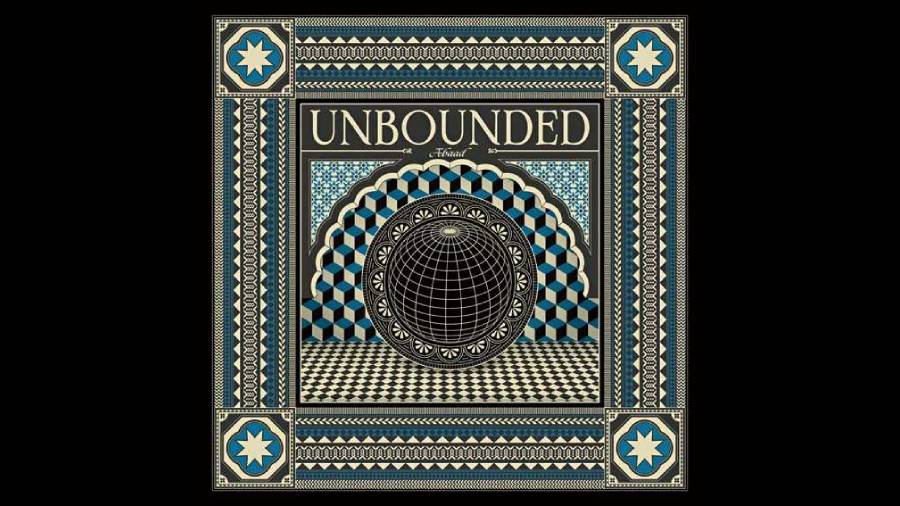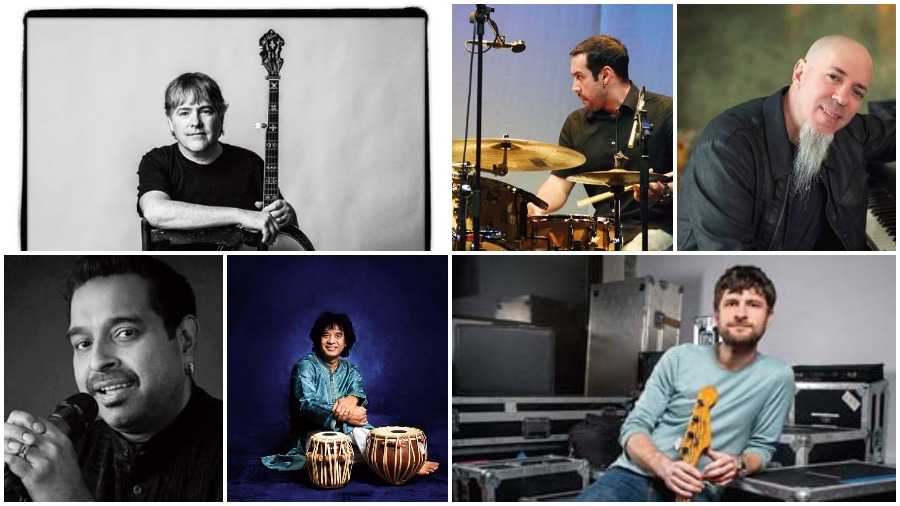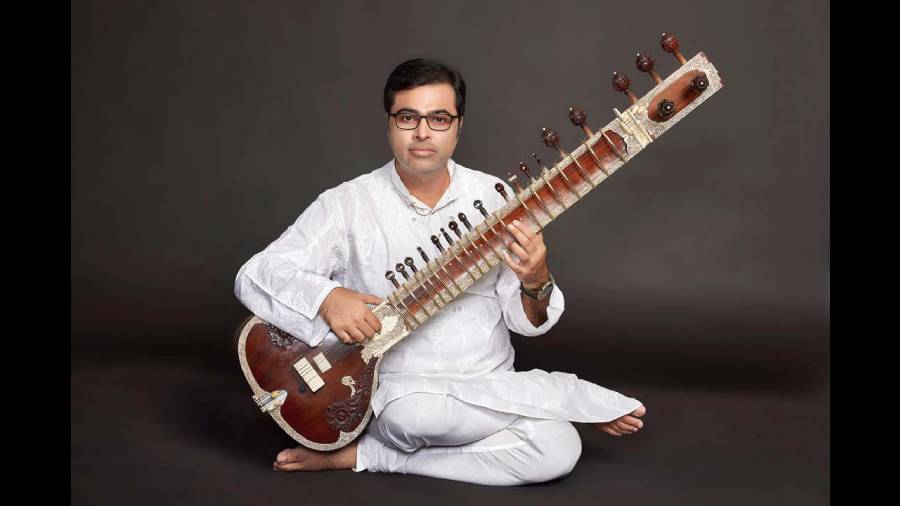Sitarist Purbayan Chatterjee loves complexity but he doesn’t let it bore listeners. On his new album — Unbounded (Abaad) — diversity and spontaneity flow like a river while presenting some of the finest collaborations of the year. There is Bela Fleck, keyboardist Jordan Rudess of the progressive metal band Dream Theater, Pat Metheny drummer Antonio Sanchez, Snarky Puppy bassist and founder Michael League, jazz clarinetist Anat Cohen, Ustad Zakir Hussain, V. Selvaganesh, Shankar Mahadevan… need we say more?
And that means there is diversity in plenty, showcasing “six different kinds of music from our subcontinent, brought into close contact with six different styles from jazz and other realms”, according to Chatterjee. “Improvisation is the most common connection point. The language of music can take you from one realm to the other — to feel that sense of being ‘looked after’, essentially. Through it you’re finding a mode of communication with a greater energy, a common energy that binds us all together,” he said.
Here’s more from Purbayan Chatterjee whose album comes from UK-based imprint Sufiscore.
Unbounded means having no boundaries or limits. What does ‘unbounded’ mean to you personally as well as professionally? And how far is it reflective of the music on your new album?
As independent music artistes, we often have to work within very definite boundaries and also have to think about the kind of music that might appeal to a certain kind of diaspora. I think I am very lucky that in the case of this album, Unbounded (Abaad), the recording company Sufiscore gave me a bit of carte blanche in terms of what I wanted to bring to the album, so I could let my imagination run wild. I think for any artiste to be able to make exactly the kind of music they want to make and letting their vision run free is a rare thing and that for me is the ideal definition of unbounded where you can really go where your mind takes you. So even in terms of choosing the artists who would be a part of this album, I could really just take a free run and I am lucky that all these great masters agreed to be a part of it.

The artwork for Unbounded (Abaad)
Do share how you conceptualised the flow of the album, like opening it with Shanmukhapriya, moving into Khulaasmaan, then Sukoon and so on? Is there a method to the track listing?
It is pretty interesting how the flow of songs happened naturally. If you look at the songs chronologically, I composed Shanmukhapriya first. I composed it a while ago. I felt it was appropriate to start the album with such a track because it had a chant-y quality to it. We were bringing in a lot of different world music elements like Antonio Sanchez’s drums and Michael’s bass and it had a bit of a Snarky Puppy-esque feel to it so we felt like starting the album with this song.
And then onwards to Sukoon which is a song by Gayatri, my wife. It seemed like a natural change of energy from the build-up of Shanmukhapriya and to slow things down and bring it into the ghazal space onto Khulaasmaan where the energy goes up. There is the bliss of the Sufi genre coming together with the high-octane energy of Jordan Rudess, and so on and so forth. I think the album flowed very naturally and was composed surprisingly enough in the order that you see the songs in the album. I felt like Lalita was almost the culmination of the album where the greatest elements — Ustad Zakir Hussain, Bela Fleck, Shankar Mahadevan, Michael League, Mame Khan everyone comes together in that song. Then we added the seventh song, which is New Beginnings, almost like an afterthought because we felt we needed to end the album on a note of hope.
How did you decide on whom to collaborate with?
I think when I spoke to people of Sufiscore, I had given them a wish list of people I wanted to collaborate with and to their credit, within 10 minutes they gave me the go ahead. The musicians, as one can see, are literally top brass in their individual genres and I thought I could bring nothing but the best energies into the album, especially since I was bringing them in not as session players but also for compositional collaboration. I wanted the vision of all these great gentlemen on the album and what you see in the finished product is a confluence of musical energies, music thoughts from all across the globe and musical energies coming from the best. I have these great masters to thank because they came together enthusiastically and supported me and supported my vision. And also suggested wherever they felt appropriate and brought their own energy and vision to each song. That’s what makes the songs on the album unique because rarely do you see such confluence of energy.
Unbounded comes at a time after the world at large looked inwards to find ways to move ahead. And here we are, 20 months into the pandemic trying to find new ways to communicate. Has the pandemic given you a reason to channel your energy better?
I think the pandemic has taught us many things and one of the most important things is that the world, for the first time, was suffering together. Everybody all over the world, nobody was left untouched by the existential threat that this virus brought with itself. So, as you very correctly said in your question, we were finding new ways to communicate, we were trying to discover what we could do to ensure the continuance of our individual vocations but also ensure the continuance of flow of creative energy.
I think sometimes great art is inspired by adversity, inspired by difficult situations and the amount of inventiveness that went into this album — so many things were done on Zoom, chord charts were written in Israel, modified in Nashville and often an artiste would be in London on a Zoom with someone in New York and me in Mumbai. So we found a way to collaborate globally and thanks to technology that we are blessed with in today’s modern world, enabled us to do. It was truly unbounded in a sense. We are not restricted by space and time or geography. As long as you’re willing to listen, there is a voice out there to be heard!
Working with Bela Fleck… what makes this collaboration different from any other?
Honestly, I am truly grateful to Ustad Zakir Hussain for enabling the collaboration with the great Bela Fleck. Zakir bhai personally took it upon himself to get in touch with Bela and recommend my name to him and create that connection.
Bela Fleck isn’t someone who does sessions for other musicians, he is pretty choosy about his associations and collaborations. I am indeed grateful that he agreed to take this on. Once the deal was sealed, he was a joy to work with, because I learnt a lot of things. We were always going back and forth on Zoom, trying to figure out exact phrases of how I should back some of the parts.
There is this one little section which is an interaction between the sitar and the banjo, and it’s mostly the sitar backing the banjo and what I could do in terms of phrasing and how I could push one note here and one note there. I learnt a lot from this interaction and one of the big takeaways from the making of this album is this one Zoom call where Bela asked me my favourite jazz song and I told him about Chick Corea’s Got A Match and he immediately picked up his banjo and started playing it! That is one of my most pleasant and cherished memories.
While working on an album, how do you switch yourself off from other distractions as well as sounds so as not to dilute the concept you are working on? What’s the process been like?
This album was particularly intense by default and we were trying to work to a deadline. So by default I had to switch off all other sounds. I was in it and with it 24/7, especially trying to coordinate different time zones and trying to talk to everyone, and since we were trying to bring in so many different energies onto the album I found myself working round the clock. Focus is mostly a natural process, you can will yourself to focus but you can’t really make yourself focus. You can will it and if what you’re working on is dear enough to you then it automatically comes. I think every album I have worked on so far I have managed to somehow make it the centre of my life.
I am also a Virgo so I think that helps because Virgos have a one-point focus and annoyingly so. This album is one of the most intense projects that I had ever undertaken and thankfully we were able to finish it within the deadline. I never thought that we would with all the various challenges posed by the pandemic but by the grace of God we were able to finish the project on time.

(Clockwise from top left) Bela Fleck, Antonio Sanchez, Jordan Rudess, Michael League, Ustad Zakir Hussain, Shankar Mahadevan
Classical musicians go through a long phase of learning before arriving at a voice of their own. What was the phase like for you?
Yes, the rigorous discipline of classical music is said to be such that you need years of sadhna before you can get out there and find your own voice. I think the process of finding your own voice automatically starts at a certain moment when you start thinking about your own legacy. Up until then you are always imitating someone or the other, and that is not a bad thing because to find your own voice you must find a few different voices to follow, to synthesise and to assimilate before you find your own voice and that’s in all kinds of music.
I think it was a very necessary journey for me from having an initial resistance towards delving into other musical genres till I arrived at a point where I could throw caution to the wind and I felt that I needed to express myself in ways other than classical music only. You have to find that calling yourself and then you have to take a deep-dive into other forms of music, which I did. I still really want to learn more about jazz because that genre really fascinates me but once you begin to find the joy in telling your own story, there is nothing like it. It is basically a coming out of sorts, a process where you are comfortable being yourself and telling your own story.
